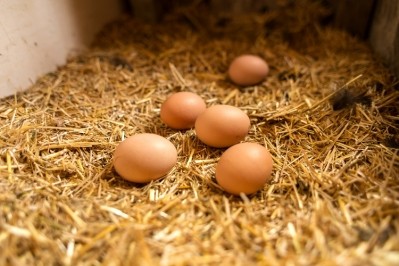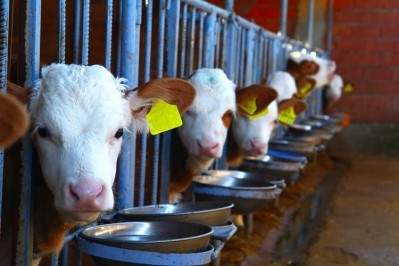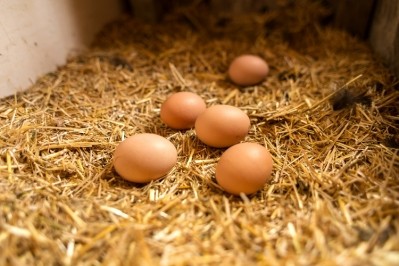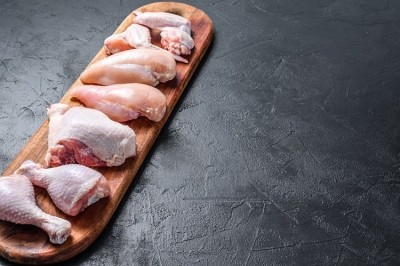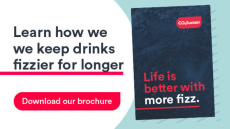Cracking progress or not up to scratch? European cage-free egg pledges in focus
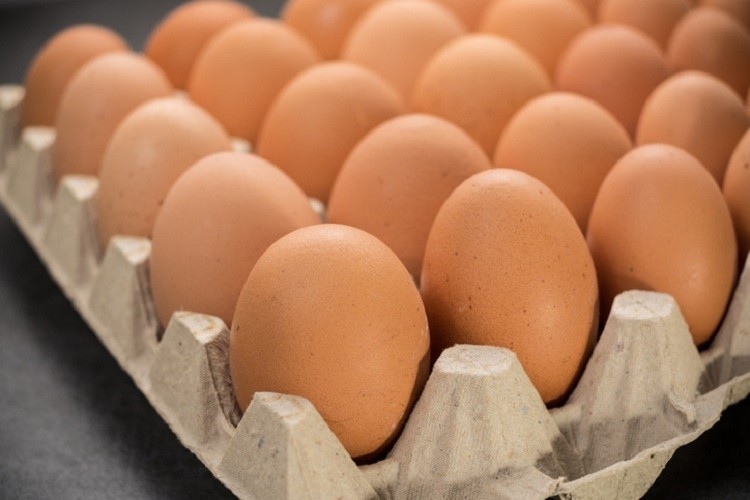
In Europe, chicken eggs – whether used for their shell, liquid, or as a processed ingredient – are big business.
An estimated 413 million laying hens are raised across the bloc, which produce 6.9m tonnes of eggs or egg product per year. Average egg consumption is calculated at 12kg per capita annually.
Growing concern surrounding animal welfare standards has had a significant impact on the way laying hens are farmed in recent years.
From a regulatory standpoint, the European Commission banned battery-caged eggs under Directive 1999/74/EC in 2012. And beyond what is legally required of producers, a growing number of food businesses are working to eliminate caged eggs from their supply chains by 2025.
So what progress has been made so far towards transitioning to cage-free eggs in the European food industry? Which players are ahead of the game, and are any retracting their commitments?
Tracking egg commitments across the bloc
Animal rights campaign group Compassion in World Farming (CIWF) has put together a bird’s-eye view of cage-free egg commitments in its 2020 Global EggTrack report.
“EggTrack aims to create transparency and drive cage-free progress in global egg markets, while catalysing business-to-business conversations that will enable a stable and successful transition to a cage-free future,” noted CIWF in the report.
Overall, the 2020 edition suggested that both the number of companies and the quality of reporting are on the rise.
On a global scale, 210 companies were included in the 2020 EggTracker, including 80 global companies and 73 that operate in Europe only. Sixty-three percent of all companies reported progress against their commitments (ahead of July 21, 2020).
In Europe, 101 companies with European commitments were tracked. Eighty-three (82%) of these businesses reported progress. Nineteen reported meeting European commitments this past year, and 15 reported progress for the first time during the report period.
Leaders in Europe…
Of the estimated 413.2 million hens in Europe, CIWF says 50.5% are kept in cage-free systems. Overall, the animal rights campaign group judges Europe’s transition to cage-free as ‘slow’, with only a 2.6% shift out of cages between 2018 and 2019.
However, a growing number of food business are going in the right direction, the report suggested. EggTrack has observed an increase in the number of companies reporting on their transition to cage-free, from 57 in 2018 to 93 in 2020.
A number of major players started their reporting journey in the 2020 period. These include Groupe d’Avril, Hilton Worldwide and Gruppo Cremonini. Others are ‘nearing completion’ – such as Aldi Nord, Starbucks, and Dominos. And four companies across Europe fulfilled their commitments this year: CIR Food, Galbusera, Unilever and Coop Italia.
However, with less than five years to meet a 2025 deadline, CIWF stressed that ‘companies need to speed up their rate of transition’.
Further, the animal campaign group urged businesses to focus on ‘hidden egg’ as well as ‘whole shell eggs’. “The hidden egg in processed products and ingredients must also be addressed if we are to eliminate caged systems. While a lack of consumer awareness and labelling of the hidden egg component are potential barriers, it is encouraging to see the increasing number of companies with cage-free commitments to all types of egg products and egg ingredients.”
Indeed of the 101 companies that have commitments in Europe, 45 have cage-free commitments for their European operations for both shell egg and egg products.
…and laggards
According to CIWF, a number of companies were found to have whole or regional commitments that can no longer be found on the public domain.
Pret A Manger’s European commitment, for example, is no longer publicly available on its website. IKEA, which had previously reported meeting a 2016 commitment to go cage-free in the US, has since removed that information from the public domain.
Supermarket retailer Asda is another to have removed commitments from its website, and fast food chain Burger King has retracted its European commitment.
CIWF also noted some foodservice commitments were unclear and encouraged businesses to clarify their reporting. Caffè Nero and Costa Coffee, for example, report progress for savoury food, however it is unclear what proportion of overall shell egg sourcing this represents.
Another foodservice player, Starbucks, reported positive progress for its company own-stores in the US and EU, however CIWF said it is unclear what proportion of the company’s overall supply chain this represents.
‘Considerable’ work still to be done
According to the latest EggTrack report, progress has been made towards building better cage-free systems. However, CIWF says there is still ‘considerable’ work to be done.
“The challenges ahead can only be tackled with clear communication and mutual investment from both producers and purchasers,” the animal rights campaign group noted. “Building up the supply of cage-free eggs that will be needed to meet demand in 2025 will take time and resources, from planning to construction and retrofitting.
“For producers to build the infrastructure and supply necessary, they must have clear expectations and willingness to invest from their customers. Producers’ timelines should be incorporated into purchasers’ timelines and sourcing plans from the beginning.”
CIWF advised food players to make cage-free their new baseline for both shell and ingredient eggs and to publicise this commitment. Further, businesses should engage with their suppliers ‘from the start’ and give them the confidence to invest in new cage-free systems through long-term contracts.
And finally, take consumers along on the journey, the animal campaign group added. “Marketing and promotion is an opportunity to educate and build buy-in.”
